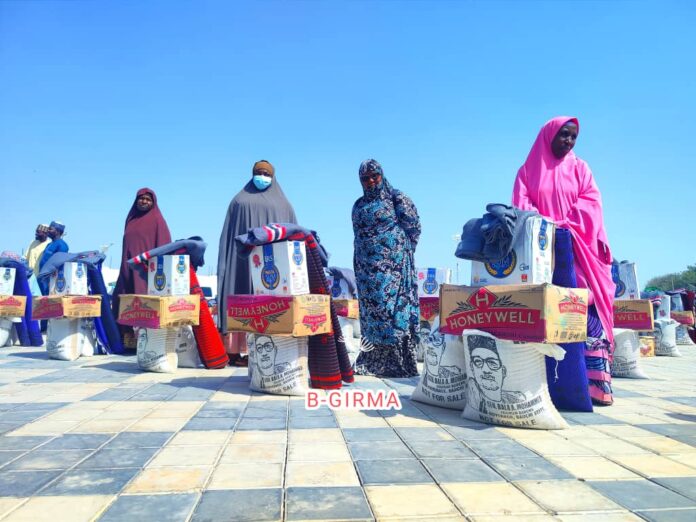By; Mohammed Kawu, Bauchi
Relief Materials worth $200, 000, equivalent to about N320, 000, 000 have been provided to the victims of the 2024 floods victims in Bauchi by the Economic Community of West African States (ECOWAS) as intervention response project to provide relief to the affected communities.
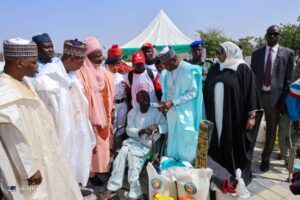
“A High-level delegation from the ECOWAS Commission, the Ministry of Foreign Affairs, the Federal Ministry of Humanitarian Affairs and Poverty Reduction, and the Nigerian Red Cross Society is in Bauchi to mark the Grand Finale of the ECOWAS Flood Response Project in Bauchi State”
Christened as the”Nigeria Grand Finale of the ECOWAS Flood Response Project in Bauchi State”, it is to finalize the distribution of food and non-food items as well as cash transfers to affected households in the state.
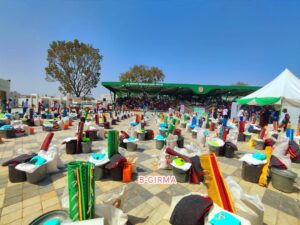
Dr. Sintiki Tarfa who represented ECOWAS at the distribution event held at the Government House, Bauchi, said that the emergency flood response project supported 850 households across the floods hardest LGAs of Katagum, Jama’are, Zaki, Gamawa, and Giade with a total of 1,000 households projected to benefit from the initiative.
She explained that under the project, each of the 1,000 affected households will receive 25 kilograms of rice; 15 kilograms of beans; 15 kilograms of garri; 5 litres of vegetable oil
5 litres of palm oil; and ₦75,000 cash transfer; in addition to essential non-food items that included mosquito-treated net, a blanket, a bucket, a mat, and a groundnut oil of 25-litre jerry-can.
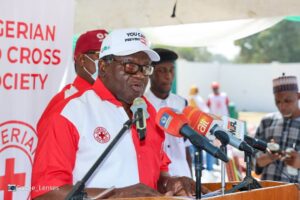
“This initiative, funded by ECOWAS, aligns with its humanitarian response framework for all Member States. The ECOWAS Humanitarian response for flood relief in Nigeria began in 2022 and so far a state from each of the 6 geopolitical zones have been beneficiaries of this support”.
One of the collaborative partners, the Nigerian Red Cross Society, recalled at the occasion that the state 2024 floods have displaced over 85,000 people, disrupted more than 14,000 households, and left communities grappling with the loss of homes, livelihoods, and for some, a sense of hope.
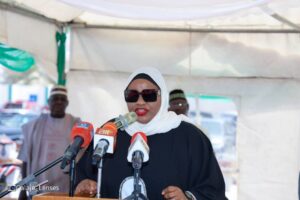
Nigerian President of the Red Cross Society, Prince Oluyemisi Adeaga, said “The Nigerian Red Cross Society, in partnership with the Federal Ministry of Humanitarian Affairs and Poverty Alleviation, and with generous funding from the Economic Community of West African States (ECOWAS), is here to offer support to those who need it the most”.
Adeaga explained that the cash support was to empower the floods victims to meet their immediate and specific needs, whether it’s repairing a home, seeking medical care, or sending a child back to school, stressing that the project is about more than relief, but also about partnership, and resilience.
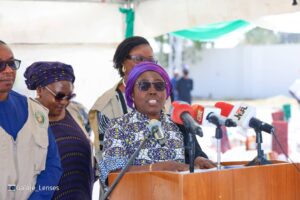
Prince Adeaga added, “We understand that numbers can feel impersonal, so let us not think of this as reaching 1,000 households or providing essential food items, non-food items, and cash assistance. Behind every statistic is a family—a mother struggling to provide food for her children, a father looking for ways to rebuild his farm, a child yearning for stability and safety”.
The Society President concluded, “I want to extend my heartfelt gratitude to ECOWAS for their unwavering support, to our partners in the Federal Ministry of Humanitarian Affairs, and to the incredible volunteers and staff of the Nigerian Red Cross who work tirelessly to bring these efforts to life”.
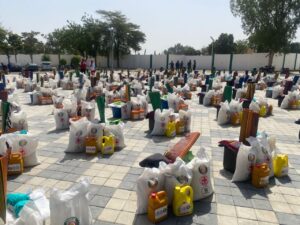
Governor Bala Abdulkadir Mohammed had while speaking said that assessment by the State Emergency Management Agency and other supervisory authorities indicated that the floods had caused large-scale displacement of more than 30,436 households comprising over 293,300 individuals.
He stated that over 52,000 houses were destroyed, and several hectares of farmlands washed away in the floods that had exacerbated humanitarian needs, with individuals, mainly women and children, being exposed to undignified living conditions and sleeping in open or crowded spaces, exposing them to protection and health risks, with
187 reported casualties including 24 deaths.
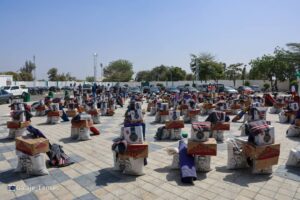
“Permit me to also place on record our acceptance to take responsibility for all the requisite logistics needed to make this event a success. We have also provided additional intervention for 150 vulnerable households to benefit from food and non-food items comprising of 1 bag of 25 kg Rice; 1 bag of 25 kg maize; 1 Carton of Sphagetti; 1 Carton of Macaroni; a Mat; a Plastic Bucket; and N75,000 in cash
Governor Bala recalled that the 2024 floods in Bauchi state following persistent heavy rains, water levels had risen leading to severe flooding that caused significant infrastructure damage, including roads, schools, health facilities, shelter facilities and other community facilities across 16 out of 20 LGAs of the State.
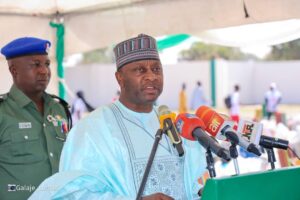
Accordingly, he revealed, farmlands and other sources of livelihoods were also affected leading to losses in farm produce and affecting food security, saying “What makes the situation even worse was the fact that areas on higher ground that were hitherto unaffected by flooding become affected”.
Also speaking at the occasion, the Minister of Foreign Affairs, Ambassador Yusuf Maitama Tuggar admonished the flood-prone communities in Bauchi state to ensure that drainages are cleared and water ways opened as part of the measures to avert future floods disaster in the state.
The Minister noted that with effective collaboration between the stakeholders, Nigeria’s capacity for disaster preparedness and responses would be better suited to address and mitigate the impact of natural disasters.
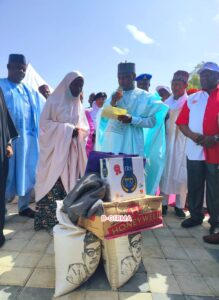
Ambassador Tuggar said, “What has happened has happened, going forward, what do we do? We have to clear drainages, make sure that the waterways are opened, prepare ourselves before the rainy season, listen to advises by the experts”.
He expressed confidence that ECOWAS will continue to support the Bauchi state government in its effort to overcome the challenges posed by the recent flooding, and assured that the ECOWAS unit in the ministry of foreign Affairs will continue working closely with the core partners to ensure that the needs of Nigerians are properly tabled at the international fora to get the kind of support and coordination required.


